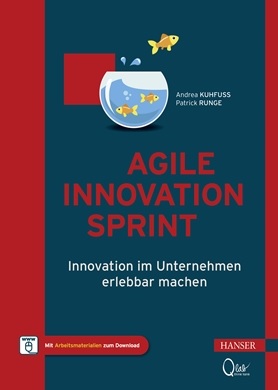How Pecha Kucha brings distributed teams together
You may be familiar with Pecha Kucha as a presentation technique in which a speaker uses images or slides to convey a topic or idea. But Pecha Kucha can do more. The approach is also suitable for onboarding new members into a team that works together remotely.
I would be happy to show you how we can use Petcha Kuchas to get future team members to reflect on their own motives and actions before the start of a project and create a safe space for sharing thoughts, personal memories and insights with people they don’t know. This approach creates the basis for value-adding and appreciative, collaborative teamwork from day 1.
How does Pecha Kucha work in onboarding?
The name Pecha Kucha comes from the Japanese and means ” chatter”. The approach was first introduced by architects Astrid Klein and Mark Dytham in Tokyo in 2003.¹
Exactly 20 images or slides are presented during the chat, with each image given exactly 20 seconds to present. In total, a Pecha Kucha presentation only lasts 6 minutes and 40 seconds. This strict timebox forces the presenters to to concentrate the presentation on the essentials and to convey the information concisely and effectively.
In our company and when working with distributed teams, we have found that Pecha Kucha, in combination with appropriate questions, is an excellent method for telling personal stories and creating an emotional and trusting bond between the audience. We therefore invite team members to prepare a personal Pecha Kucha 14 days before the kick-off of our Agile Innovation Sprint² with the following email:
“Dear (first name),
We are very curious to know who you are!
Please prepare a Pecha Kucha to introduce yourself at the kick-off on (date).
A Pecha Kucha is a form of presentation with 20 pictures that are displayed for 20 seconds each. Please only use pictures, no words!
You can find some examples here: https://www.pechakucha.com/communities/pechakucha-of-the-day
Your Pecha Kucha should contain pictures on the following topics (see questions) and the stories behind the pictures that you want to tell us. (Please make sure that the slides change every 20 seconds).
We look forward to getting to know you and working with you!
Sincerely, Your QLab Think Tank Team”
Questions for a personal introduction
There is a whole range of information that helps you to get to know a person and their background and experience in just a few minutes. Here are the 20 questions we like to ask new team members:
- You as a baby
- You as a teenager
- The heroine or hero of your youth
- Your family (pets included!)
- Your friends (pets included!)
- You in the here and now
- Your favourite animal (besides your pet!)
- What is your current challenge?
- What is the vision for your life?
- Why is this your vision?
- What helps you to achieve your vision?
- What problems would you like to solve on this planet?
- What are your values?
- How do you live and show your values?
- Your current heroine/heroine
- Your special competences
- Your passion
- What don’t you need in your life?
- What would you like to change?
- What kind of person do you want those around you to remember you as?
The topics range from personal memories (such as “you as a baby” or “you as a teenager”) to deeper questions such as “What is your vision for your life?” and “What problems would you like to solve on this planet?”.
Questions like “What are your values?” and “Your passion” help the team to understand the individual drives and motivations of their colleagues and build empathy. The question “What kind of person do you want those around you to remember you as?” encourages reflection on long-term goals and personal influence.
The benefits of Pecha Kucha when working with teams
We experience it time and again: this type of kick-off creates a basis for appreciation and productive collaboration and promotes an environment of openness and trust right from the start. In addition, the future team members practise storytelling, which is an important ingredient for our work and the basis for design thinking.
The power of storytelling lies in communicating complex ideas and emotions in a simple yet profound way. Storytelling encourages a change of perspective and empathy, which also plays a major role in building long-term relationships with customers! By telling personal stories, team members open up, share their experiences and values and build an emotional connection with each other. This connection is the key to effective collaboration, especially in a remote team where physical distance needs to be bridged by interpersonal closeness.
Incidentally, we have found that Pecha Kucha is not only effective digitally, but also analogue, as the approach engages team members on a personal level and fosters deep understanding, which is essential for any kind of teamwork.
Summary
Pecha Kucha is a presentation technique that is fun and relatively easy to use – even during onboarding. It is a great way to strengthen team collaboration from the outset and lay a solid foundation for successful projects.
We have had good experience of inviting new team members to the Pecha Kucha 14 days before the kick-off so that they have enough time to prepare. The questions provided help to share experiences, visions and values in a structured yet personal way. The questions work in two directions:
- They offer the opportunity for self-reflection and
- promote empathy and trust.
Sharing personal stories creates an atmosphere of trust and openness, which is essential for building a value-creating team.
The practice of storytelling also strengthens the communication skills of team members and promotes an understanding of the diversity of perspectives and backgrounds within the team. And that is the basis for establishing value-adding and appreciative collaboration from day one.
Have fun trying it out!
Extra bonus
Here you will find 3 additional questions answered by Andrea Kuhfuss (please press the plus button):
How do you deal with possible cultural differences in international teams?
Andrea Kuhfuss: Even when we include international colleagues in our teams, we always use the same questions. The great thing is that we always focus on what we have in common. It’s also incredibly exciting to gain insights into the different cultures through the pictures.
How do introverts feel about this form of presentation?
Andrea Kuhfuss: We’ve only had good experiences so far. Our team members have time to prepare. And they decide for themselves what they want to show or not. As a rule, preparing for the Pecha Kucha is perceived as something very positive: “I haven’t taken time to reflect on myself and my life for a long time.”
Does this form of onboarding also work for new employees at the company?
Andrea Kuhfuss: Yes, definitely! It’s ideal if the other team colleagues who are already on site also introduce themselves with a Pecha Kucha.
If you are interested in finding out more about supporting digital and analogue teams worldwide, stake a look at QLab. It’s definitely worth it.
[1] Astrid Klein and Mark Dytham: PechaKucha Night
[2] Agile Innovation Sprint. Innovation im Unternehmen erlebbar machen by Andrea Kuhfuss.
If you like the article or would like to discuss it, please feel free to share it in your network.
Andrea Kuhfuss has published another article in the t2informatik Blog:

Andrea Kuhfuss
Andrea Kuhfuss is co-founder and managing director of QLab Think Tank GmbH in Bremen. Her path led her from an art history background into innovation consulting and organisational development. She is a Design Thinking and Design Sprint expert and has completed certificate studies in this context at the Hasso Plattner Institute and Stanford University in Palo Alto.
Andrea is an inquisitive generalist who loves to share her knowledge and support both individuals, team and organisations to unleash their full innovation potential. She believes that by working together in multidisciplinary teams we can find creative solutions to personal, societal and global problems.

